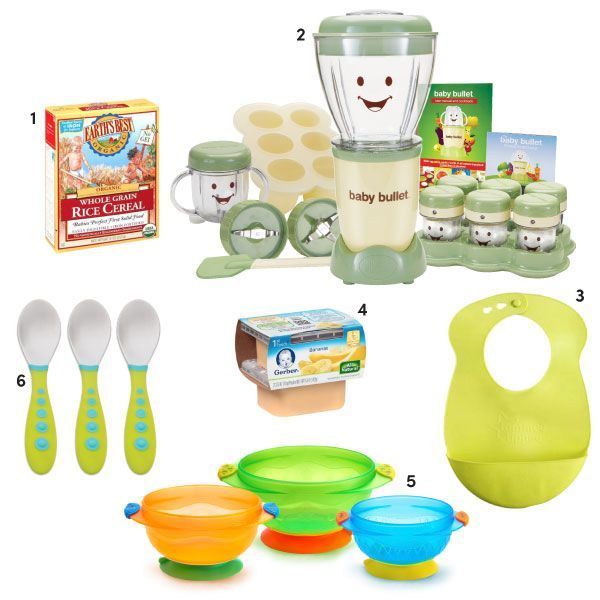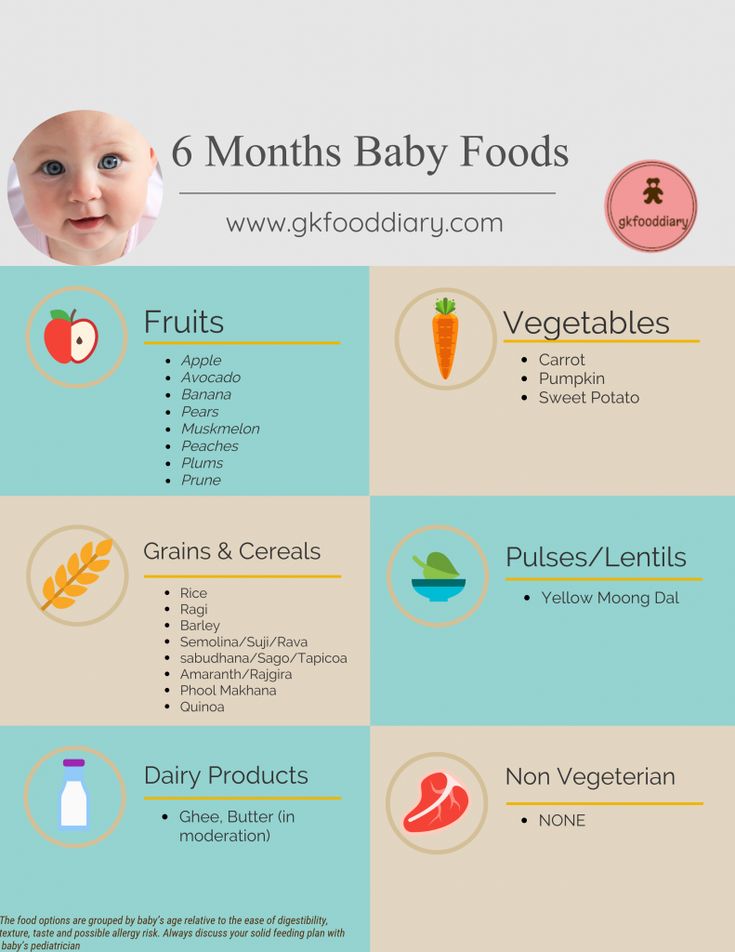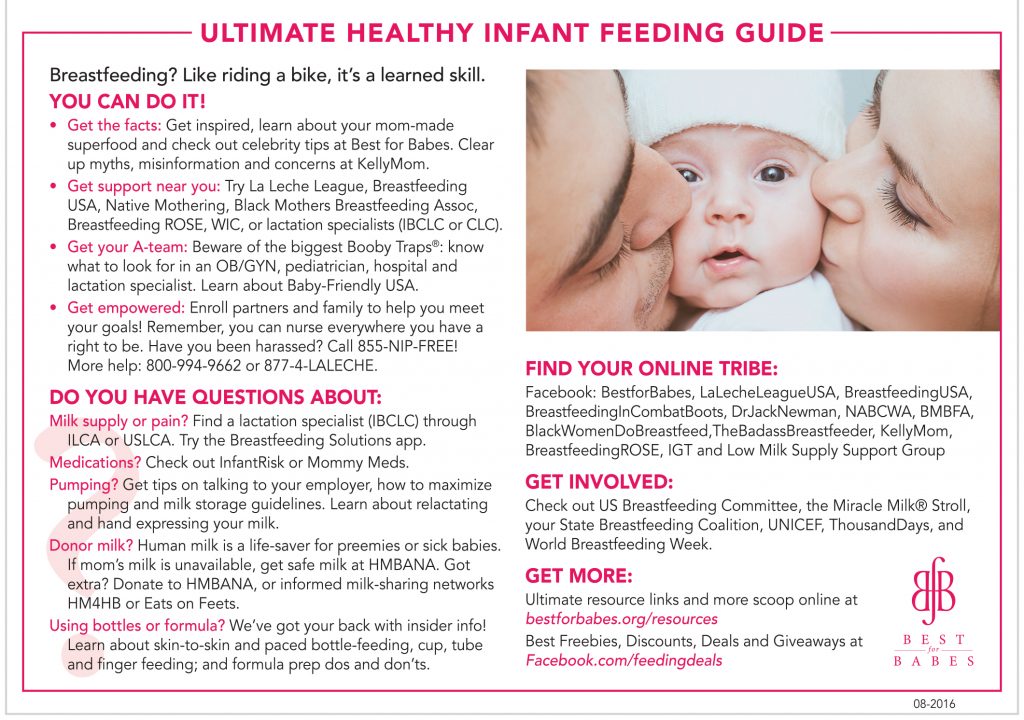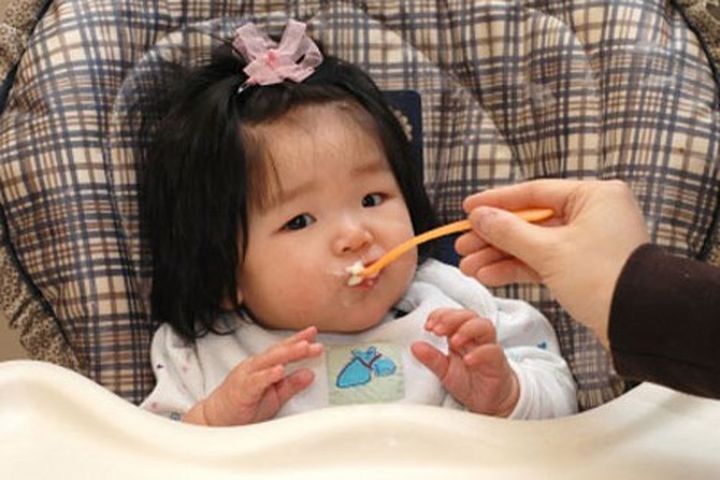Woman feeding baby
Frequently Asked Questions (FAQs) | Breastfeeding
What are the benefits of breastfeeding?
Breastfeeding is good for both infants and mothers. Breast milk is the best source of nutrition for most infants. As an infant grows, breast milk changes to meet the infant’s nutritional needs. Breastfeeding can also help protect the infant and mother against certain illnesses and diseases:
Benefits to Infants
Infants who are breastfed have a lower risk of:
- Asthma.
- Obesity.
- Type 1 diabetes.
- Severe lower respiratory disease.
- Acute otitis media (ear infections).
- Sudden infant death syndrome (SIDS).
- Gastrointestinal infections (diarrhea/vomiting).
- Necrotizing enterocolitis (NEC) for preterm infants.
Benefit to Mothers
Mothers who breastfeed their infants have a lower risk of:
- Breast cancer.
- Ovarian cancer.
- Type 2 diabetes.
- High blood pressure.
Families can visit CDC’s Infant and Toddler Nutrition website to learn more about what to expect while breastfeeding.
When should a mother avoid breastfeeding (contraindications)?
Breast milk provides the best nutrition for most infants, including premature and sick newborns. However, there are rare exceptions when breast milk or breastfeeding is not recommended. Learn more about contraindications to breastfeeding.
Only a few medications are contraindicated (not recommended) while breastfeeding. Although many medications do pass into breast milk, most have little or no effect on milk supply or on an infant’s well-being. However, health care providers should always weigh the risks and benefits when prescribing medications to breastfeeding mothers.
Learn more about safe prescription medication use while breastfeeding.
Top of Page
How is growth assessed for breastfed infants?
In the United States, the World Health Organization (WHO) Growth Standard Charts are recommended for use with both breastfed and formula-fed infants and children, from birth to 2 years of age, to monitor growth.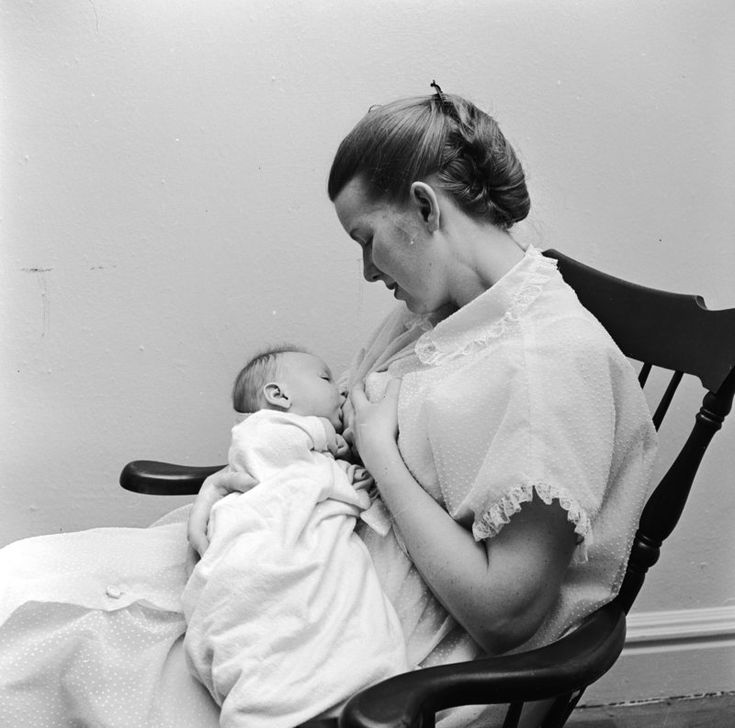 The WHO growth charts reflect growth patterns among children who were predominantly breastfed for at least 4 months and were still breastfeeding at 12 months. The WHO growth charts establish the growth of the breastfed infant as the norm for growth and are the standards for how children should grow when provided optimal conditions. Clinicians should be aware that healthy breastfed infants typically gain weight faster than formula-fed infants in the first few months of life but then gain weight more slowly for the remainder of infancy, even after complementary foods are introduced.
The WHO growth charts reflect growth patterns among children who were predominantly breastfed for at least 4 months and were still breastfeeding at 12 months. The WHO growth charts establish the growth of the breastfed infant as the norm for growth and are the standards for how children should grow when provided optimal conditions. Clinicians should be aware that healthy breastfed infants typically gain weight faster than formula-fed infants in the first few months of life but then gain weight more slowly for the remainder of infancy, even after complementary foods are introduced.
For children older than 2 years (2 to 19 years of age) CDC and the American Academy of Pediatrics recommend that health care providers use the CDC Growth Reference Charts.
Visit the Growth Chart Training website for a set of self-directed, interactive training courses.
Source: Grummer-Strawn LM, Reinold C, Krebs NF. Use of the World Health Organization and CDC growth charts for children aged 0 to 59 months in the United States. MMWR Recomm Rep. 2010;59(RR-9):1–15.
MMWR Recomm Rep. 2010;59(RR-9):1–15.
Top of Page
How long should a mother breastfeed?
The U.S. Dietary Guidelines for Americans [PDF-30.6MB] recommend that infants be exclusively breastfed for about the first 6 months, and then continuing breastfeeding while introducing appropriate complementary foods until your child is 12 months old or older. The American Academy of Pediatrics and the World Health Organization also recommend exclusive breastfeeding for about the first 6 months, with continued breastfeeding along with introducing appropriate complementary foods for up to 2 years of age or longer.
Mothers should be encouraged to breastfeed their children for at least 1 year. The longer an infant is breastfed, the greater the protection from certain illnesses and long-term diseases. The more months or years a woman breastfeeds (combined breastfeeding of all her children), the greater the benefits to her health as well.
The American Academy of Pediatrics recommends that children be introduced to foods other than breast milk or infant formula when they are about 6 months old. To learn more about infant and toddler feeding, visit CDC’s Infant and Toddler Nutrition website.
To learn more about infant and toddler feeding, visit CDC’s Infant and Toddler Nutrition website.
Top of Page
What can happen if someone else’s breast milk is given to another child?
Very few illnesses are transmitted via breast milk. Learn more about what to do if an infant or child is mistakenly fed another woman’s expressed breast milk.
Top of Page
Are special precautions needed for handling breast milk?
CDC does not list human breast milk as a body fluid to which universal precautions apply. Occupational exposure to human breast milk has not been shown to lead to transmission of HIV or Hepatitis B infection. However, because human breast milk has been implicated in transmitting HIV from mother to infant, gloves may be worn as a precaution by health care workers who are frequently exposed to breast milk (e.g., people working in human milk banks (defined below). For additional information regarding universal precautions as they apply to breast milk in the transmission of HIV and Hepatitis B infections, visit the following resources:
Centers for Disease Control and Prevention. Perspectives in disease prevention and health promotion update: universal precautions for prevention of transmission of human immunodeficiency virus, Hepatitis B virus, and other bloodborne pathogens in health-care settings. MMWR Morb Mortal Wkly Rep. 1988;37(24):377–388.
Perspectives in disease prevention and health promotion update: universal precautions for prevention of transmission of human immunodeficiency virus, Hepatitis B virus, and other bloodborne pathogens in health-care settings. MMWR Morb Mortal Wkly Rep. 1988;37(24):377–388.
Top of Page
Where can mothers find more information about preparation and storage of breast milk?
CDC has guidelines for proper storage and preparation of breast milk to maintain the safety and quality of expressed breast milk for the health of the baby.
For more information about specific storage and preparation of breast milk questions, such as where to store breast milk at work, and what to do when the power goes out, visit CDC’s Storage and Preparation of Breast Milk Frequently Asked Questions.
Top of Page
What are human milk banks?
Human milk banks are a service established for the purpose of collecting milk from donors and processing, screening, storing, and distributing donated milk to meet the specific needs of individuals for whom human milk is prescribed by licensed health care providers. When possible, human milk banks also serve healthy infants who have been adopted or are not able to get their own mother’s milk.
When possible, human milk banks also serve healthy infants who have been adopted or are not able to get their own mother’s milk.
Milk banks accept donations directly at their deposit sites or they can arrange for safe, overnight transportation of human milk at no cost to the donor. Learn more about donating to a milk bank by visiting the Human Milk Banking Association of North America (HMBANA).
Top of Page
Is it safe for families to buy breast milk on the internet?
The American Academy of Pediatrics and the Food and Drug Administration recommend avoiding Internet-based milk sharing sites and instead recommend contacting milk banks. Research has demonstrated that some milk samples sold online have been contaminated with a range of bacteria.1
Nonprofit donor human milk banks, where processed human milk comes from screened donors, have a long safety record in North America. All member banks of the Human Milk Banking Association of North America (HMBANA) must operate under specific evidence-based guidelines that require extensive testing and processing procedures as well as self-reported health information and a health statement from both the donor’s health care provider and the infant’s health care provider. Because most of the milk from milk banks is given to hospitalized and fragile infants, milk banks may not have enough to serve healthy infants at all times. To find a human milk bank, contact HMBANA.
Because most of the milk from milk banks is given to hospitalized and fragile infants, milk banks may not have enough to serve healthy infants at all times. To find a human milk bank, contact HMBANA.
1Keim, SA, Hogan, JS, McNamara, KA, et al. Microbial contamination of human milk purchased via the internet. Pediatrics. 2013;132(5).
Top of Page
What legal rights do breastfeeding mothers have?
Breastfeeding Laws
- All 50 states, the District of Columbia, Puerto Rico and the Virgin Islands have laws that specifically allow women to breastfeed in any public or private location. Visit the National Conference of State Legislatures to learn more about federal and state laws that protect and support breastfeeding.
Workplace Laws
- The “Break Time for Nursing Mothers Provision” of the Patient Protection and Affordable Care Act (ACA) requires employers to support breastfeeding mothers to express breast milk for 1 year after each child’s birth by providing mothers with reasonable break time and a private, non-bathroom space to express their breast milk.
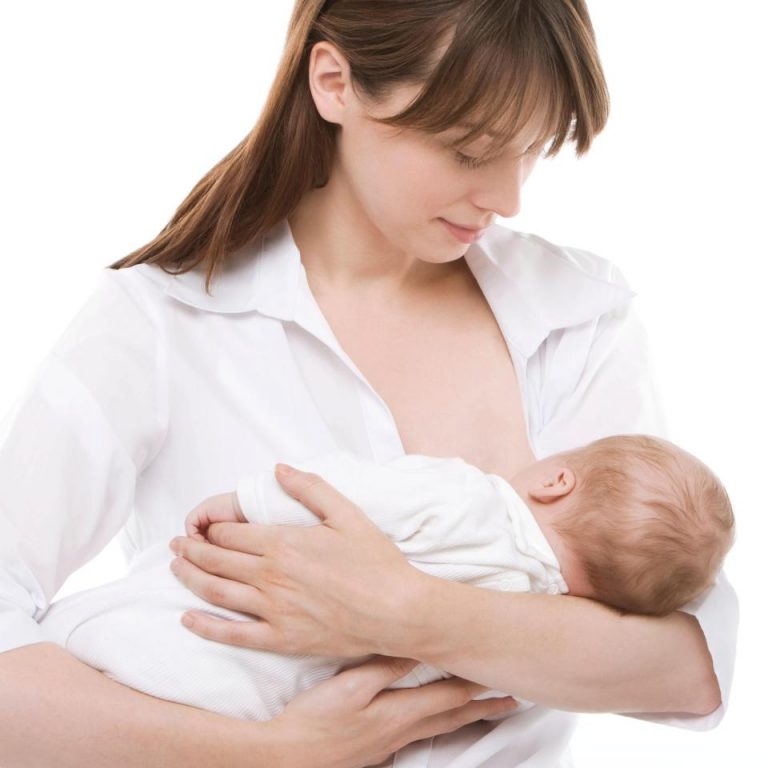 Visit the United States Department of Labor to learn more.
Visit the United States Department of Labor to learn more.
Travel Laws
- Air travelers are permitted by the Transportation Security Administration (TSA) to bring breast milk, formula, and juice in excess of 3.4 ounces in their carry-on baggage and it does not need to fit within a quart size bag. Ice packs, freezer packs, and other accessories needed to keep the liquid cool are also allowed in carry-on bags. All liquids and partially frozen accessories are subject to being screened by X-ray. TSA is required by the Bottles and Breastfeeding Equipment Screening Act (BABES act) to provide ongoing training to ensure TSA staff receive consistent training related to traveling with breast milk, formula, and infant feeding equipment. Visit the TSA to learn more about traveling with breast milk, formula, and juice. For tips on travel and breastfeeding, visit Travel Recommendations for the Nursing Mother.
Visit the Federal Policies, Programs, & Initiatives website to learn more about laws related to breastfeeding protections.
Top of Page
How can a mother continue to provide breast milk to her infant after returning to work or school?
Being prepared for returning to work or school can help a mother ease the transition and continue to breastfeed after her maternity leave is over. The Office on Women’s Health has information for making this transition easier.
When a mother is away from her infant, she can pump or hand express her breast milk so that her infant can drink breast milk from a bottle. Mothers can visit CDC’s Infant and Toddler Nutrition website to learn more about pumping breast milk.
Mothers who are expressing their breast milk should visit the CDC’s Proper Storage and Preparation of Breast Milk website to learn how to prepare and store breast milk safely for her infant.
The Patient Protection and Affordable Care Act (ACA) requires employers to support breastfeeding mothers to express breast milk for 1 year after each child’s birth by providing mothers with reasonable break time and a private, non-bathroom space to express their breast milk. For more information about the types of employees and employers to which the requirements apply, refer to the United States Department of Labor’s Frequently Asked Questions.
For more information about the types of employees and employers to which the requirements apply, refer to the United States Department of Labor’s Frequently Asked Questions.
Top of Page
Where can mothers find breastfeeding support and additional Information about breastfeeding?
Help mothers find lactation support through the following resources:
- International Lactation Consultant Association (IBCLCs)
- United States Lactation Consultant Association (IBCLCs)
- Special Supplemental Nutrition Program for Women, Infants, and Children (WIC) clinics
- La Leche League
Help mothers find resources about breastfeeding by directing them to the following websites:
- CDC— Infant and Toddler Nutrition
- Office on Women’s Health—Breastfeeding
- American Academy of Pediatrics—Healthy Children
- United States Breastfeeding Committee—State Coalitions Directory
- US Department of Agriculture—WIC Breastfeeding Support
Top of Page
Does breastfeeding during a child’s vaccine injections help with pain management?
Parents who are breastfeeding should be encouraged to breastfeed children age 2 years or younger before, during, and after their child’s vaccination. Several aspects of breastfeeding are thought to decrease pain by multiple mechanisms: being held by the parent, feeling skin-to-skin contact, suckling, being distracted, and ingesting breast milk. Potential adverse events such as gagging or spitting up have not been reported. Alternatives to breastfeeding include bottle-feeding with expressed breast milk or formula throughout the child’s procedure, which simulates aspects of breastfeeding.
Several aspects of breastfeeding are thought to decrease pain by multiple mechanisms: being held by the parent, feeling skin-to-skin contact, suckling, being distracted, and ingesting breast milk. Potential adverse events such as gagging or spitting up have not been reported. Alternatives to breastfeeding include bottle-feeding with expressed breast milk or formula throughout the child’s procedure, which simulates aspects of breastfeeding.
Top of Page
Does breastfeeding after a child’s rotavirus vaccine impact the vaccine’s efficacy?
There is not sufficient evidence to suggest that breastfeeding can have a negative effect on rotavirus vaccine efficacy. A previous study found that human milk from women who live in areas with endemic rotavirus contains antibodies that can neutralize live rotavirus vaccine virus. However, in licensing trials, the effectiveness of rotavirus vaccine in breastfed infants was comparable to that in non-breastfed infants.
CDC does not recommend restricting or discontinuing breastfeeding before or after a child receives the rotavirus vaccine. Breastfed infants should be vaccinated according to the same schedule as non-breastfed infants.
Breastfed infants should be vaccinated according to the same schedule as non-breastfed infants.
Learn More about prevention of Rotavirus Gastroenteritis among infants and children.
Top of Page
What to Expect While Breastfeeding | Nutrition
Every mother’s experience with breastfeeding is different. Whether this is your first baby or you have many, each baby is unique. Breastfeeding will be a learning process.
Your baby is learning how to:
- Latch.
- Suck.
- Swallow.
You are learning how to:
- Position your baby to feed.
- Observe and follow his or her hunger cues.
- Manage your breast milk supply and breast health.
Breastfeeding support is available. Visit our resources page to find the right kind of help for you.
Top of Page
First Days and Weeks
Milk Coming In
At birth, your breasts will make a thick, yellowish substance called colostrum.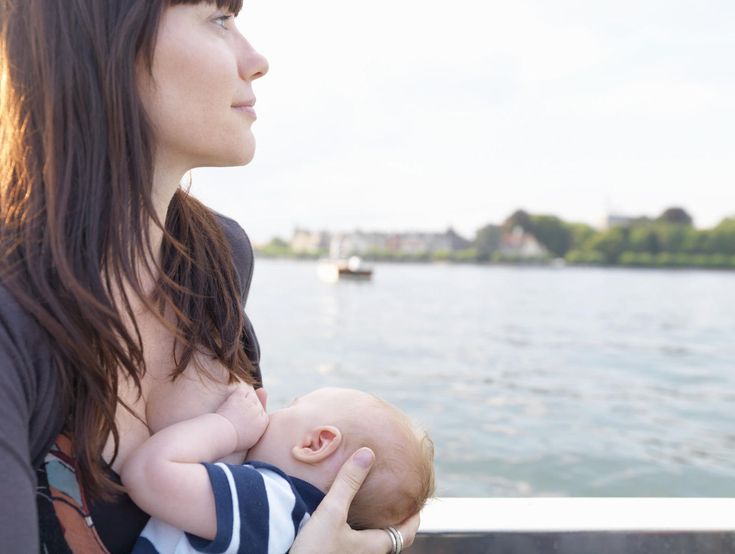 Colostrum is packed with nutrients and other important substances that help your baby start building up his or her immune system. There will not be a lot of this liquid at first, but the amount will gradually increase over the first couple of days. Most babies will get all the nutrition they need through colostrum during the first few days of life. As you begin breastfeeding, your baby’s sucking will tell your body to start making milk. For most mothers, this thinner, whiter form of milk comes in by about 3 days after birth, but may take longer for first-time moms. You may notice your breasts feeling full, hard, and warm as this happens. Your baby may begin to want to breastfeed more frequently around this time. If you are concerned about your milk coming in, talk to a lactation consultant or your doctor or nurse.
Colostrum is packed with nutrients and other important substances that help your baby start building up his or her immune system. There will not be a lot of this liquid at first, but the amount will gradually increase over the first couple of days. Most babies will get all the nutrition they need through colostrum during the first few days of life. As you begin breastfeeding, your baby’s sucking will tell your body to start making milk. For most mothers, this thinner, whiter form of milk comes in by about 3 days after birth, but may take longer for first-time moms. You may notice your breasts feeling full, hard, and warm as this happens. Your baby may begin to want to breastfeed more frequently around this time. If you are concerned about your milk coming in, talk to a lactation consultant or your doctor or nurse.
Pacifiers and your baby.
If you are breastfeeding your baby, you may want to wait to use a pacifier until breastfeeding is well-established. At that time, using a pacifier for naps and at bedtime can help reduce the risk of Sudden Infant Death Syndrome (SIDS).
Leaking
Your breasts may feel full and leak. Over time, the leaking may slow down as your body gets used to breastfeeding. If your breasts leak, you may find it helpful to put disposable or cloth pads in your bra.
Engorgement
Over the first few weeks after birth, your breasts may become larger, firm, warm, and uncomfortable as your body adjusts to making milk. This is called engorgement. As your breasts get used to filling and emptying as you feed your baby, this should improve. Feeding your baby frequently should help to prevent severe engorgement and relieve discomfort.
Sore Nipples
During the first few weeks of breastfeeding, your nipples may be sore or sensitive as they adjust to your baby’s sucking. If you have cracked or damaged nipple skin, or pain that is not improving over the first 1–2 weeks, talk to a lactation consultant or your doctor or nurse.
Pain While Breastfeeding
Although your breasts and nipples may be tender or uncomfortable, once your baby is well-latched, breastfeeding should not be painful. Sometimes pain can happen if you have an improper latch, a milk duct that is clogged with milk (plugged milk duct), a breast infection (mastitis), or other issues. If you have pain while breastfeeding, especially with a fever, talk with your doctor or nurse to figure out why.
Sometimes pain can happen if you have an improper latch, a milk duct that is clogged with milk (plugged milk duct), a breast infection (mastitis), or other issues. If you have pain while breastfeeding, especially with a fever, talk with your doctor or nurse to figure out why.
Postpartum Depression
Postpartum depression is depression that some women feel after having a baby. Feelings of postpartum depression are more intense and last longer than those of “baby blues,” a term used to describe the worry, sadness, and tiredness many women experience after having a baby. “Baby blues” symptoms typically resolve on their own within a few days. Postpartum depression is common and doesn’t feel the same for everyone. How often symptoms occur, how long they last, and how intense they may feel can be different for each person. Mothers with postpartum depression can usually continue to breastfeed. If you think you may be experiencing postpartum depression, or have other mental health concerns, contact your healthcare provider for help right away. Many medications do pass into breastmilk, but you can work with your healthcare provider to identify treatment options that are safe to use while breastfeeding.
Many medications do pass into breastmilk, but you can work with your healthcare provider to identify treatment options that are safe to use while breastfeeding.
Breastfeeding Considerations
Human milk provides the best nutrition for most babies, including premature and sick newborns. However, there are rare exceptions when human milk or breastfeeding is not recommended. Learn more about when breastfeeding is not recommended.
Only a few medications are not recommended while breastfeeding. Learn more about safe prescription medication use while breastfeeding.
Learn more about breastfeeding and certain illnesses and conditions.
Top of Page
As Your Baby Gets Older
Teething/Biting
You can continue to breastfeed once your baby starts to get teeth. Babies use their tongues, not their teeth, to breastfeed. If your baby is latched well and sucking, you should not feel the teeth while your baby is feeding. Once in a while babies might bite the nipple or breast, especially when they are teething. Talk to a lactation consultant for tips on how to teach your baby not to bite.
Talk to a lactation consultant for tips on how to teach your baby not to bite.
Refusing to Breastfeed
Sometimes babies will suddenly stop wanting to breastfeed. Many times it is hard to know why this happens. Refusing to breastfeed is usually temporary and your baby will start breastfeeding again within a few days. Some reasons your baby may refuse breastfeeding include teething, illness, stress, a change in environment such as a new childcare situation, or a major change in routine. This usually does not mean your baby is ready to wean.alert icon
To help your baby return to breastfeeding:
- Keep offering your baby the breast or breast milk from a bottle if bottle feeding.
- Spend extra time cuddling and holding your baby.
- Offer the breast in quiet spaces and when your baby is sleepy or relaxed.
- Pump or express milk frequently to keep your breast milk supply up until your baby starts breastfeeding again.
Distracted Breastfeeding
Your baby is starting to notice all the things going on around him or her. This can mean that your baby might get distracted while breastfeeding. Help your baby focus by turning off the TV, dimming the lights, or feeding in a quiet place.
This can mean that your baby might get distracted while breastfeeding. Help your baby focus by turning off the TV, dimming the lights, or feeding in a quiet place.
Weaning
Although breastfeeding is recommended until your baby is at least 12 months old, weaning may happen before then. Learn about when and how to wean your baby from breastfeeding.
Visit the Office on Women’s Health websiteexternal icon for more information on learning to breastfeedexternal icon and breastfeeding challengesexternal icon.
Top of Page
In a Kemerovo cafe, a woman was kicked out to feed her baby in the toilet - Gazeta.ru
In a Kemerovo cafe, a woman was kicked out to feed her baby in the toilet - Gazeta.Ru | News
close
100%
In Kemerovo, a visitor was forbidden to breastfeed in a cafe. This is reported by NGS42.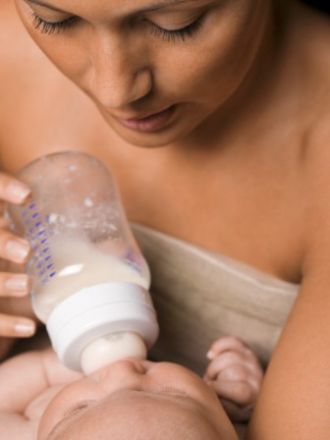 RU.
RU.
A girl came to a cafe with a friend and a baby. The woman decided to breastfeed the baby. According to her, she covered herself so that nothing could be seen.
“I always try not to see anything. As soon as the baby began to eat, the administrator approached me and said: “We do not allow breastfeeding in the hall, so please go to the toilet.” It was strange to hear this, since we came on Tuesday, it was the middle of the working day and there were no other visitors in the cafe, ”the girl told the publication.
According to the Russian woman, there was no “mother and child room” in the cafe, and there was only one toilet for men and women.
“It turned out that there was only one restroom in the café, for both men and women. While I was feeding, the toilet handle was twitching endlessly - the visitors did not understand why it was busy for so long, ”the girl admitted to the publication.
The visitor checked the cafe regulations. The rules of the establishment did state that it was forbidden to breastfeed in the premises. However, customers with animals were allowed in the cafe.
However, customers with animals were allowed in the cafe.
“It is allowed to come to this cafe with dogs, they even put a bowl of water at the entrance. I love animals, but they can be carriers of various diseases, and yet they walk around the institution without any problems, while feeding a child there is fu, ”the girl was indignant.
Previously reported that a transgender mother was criticized for feeding her child with fake breasts.
Subscribe to Gazeta.Ru in News, Zen and Telegram.
To report a bug, select the text and press Ctrl+Enter
News
Zen
Telegram
"Soviet children's books lose out to modern ones in all respects"
Mom-philologist - about Soviet children's books
“We let the gluttonous son of close friends live for a few days and still can’t kick him out”
A financier from Moscow talks about forced hospitality
“My husband wants sex three times a day, but once a month is enough for me”
A housewife from Irkutsk talks about the difference in sexual temperaments
“I won’t let my husband go to a class meeting if his first love comes there”
Accountant from Voronezh - about saving the family
Why did the mother transfer the dacha and apartment to her new husband, leaving her children and grandchildren with nothing
A housewife from Orel about the housing problem
Error found?
Close
Thank you for your message, we will fix it soon.
Continue reading
Fight for the breast: is it possible to feed the baby in front of everyone
https://ria. ru/20160803/1473398572.html
ru/20160803/1473398572.html
Fight for the breast: is it possible to feed the baby in front of everyone
Fight for the breast: is it possible to feed the baby in front of everyone - RIA Novosti, 03.03.2020
Breastfeeding: is it possible to breastfeed in front of everyone?
Many mothers face negative public reaction to breastfeeding in public. RIA Novosti figured out what is the reason for it.
2016-08-03T16:21
2016-08-03T16:21
2016
RIA Novosti
1
5
4.7
9000
7 495 645-6601
FSUE MIA Today "
https: // XN --c1acbl2abdlkab1og.xn--p1ai/awards/
News
en-RU
https://ria.ru/docs/about/copyright.html
https://xn--c1acbl2abdlkab1og.xn-- p1ai/
RIA Novosti
1
5
4.7
96 9000
7 495 645-6601
FSUE MIA Russia Today "
https: //xn-c1acbl2abdlkab1og. xn-p1ai/avards/
xn-p1ai/avards/
1080
true
1920
1440
true
https://cdnn21.img.ria.ru/images/147340/08/1473400843_228:0:2959:2048_1920x0_80_0_0_5ae0ff2467018051be9a4904e8157f81.jpg
1920
1920
true
RIA Novosti
1
5
4.7
96 9000
7 495 645-6603
FSUE MIA today
https: // XN-C1ACBL2ABDLKab1G. XN-P1AI/ Awards/
RIA Novosti
1
5
4.7
9000
7 495 645-6601
FSUE MIA Russia Today
HTTPS ://xn--c1acbl2abdlkab1og.xn--p1ai/awards/
Society, Russia
Society, Russia
MOSCOW, August 3 - RIA Novosti, Victoria Salnikova. The week of August 1-7 has been declared Breastfeeding Week in 170 countries. This action is held to support mothers. Breastfeeding in a public space in Russia is ambiguous: many women face a negative reaction from society. RIA Novosti figured out whether this problem really exists.
RIA Novosti figured out whether this problem really exists.
Space problem
Gone are the days when mothers with newborns had to stay at home. Modern mothers are not ready to give up an active lifestyle, so they take babies with them on trips. But special places for feeding do not exist everywhere, and an attempt to feed a child at a table in a cafe often causes rejection by others.
© Photo : Provided by Alena KorotkovaAlena Korotkova, lactation consultant
© Photo : Provided by Alena Korotkova
"The more nursing rooms, the easier and more peaceful for mothers. This applies not only to the right to breastfeed, but also the right of the child to receive breast milk in any convenient place and at any time. Not in all museums, shopping centers, cafes and others in public places there are rooms for mother and child, where you can comfortably feed your baby. This direction in the service sector is still developing, "said Alena Korotkova, psychologist and consultant on breastfeeding.
Hence the problem: there are no special rooms, but there is a child who asks for milk every two hours. Some mothers are afraid of an aggressive reaction, so they feed babies only at home.
"I was afraid of reprimand, which, I am sure, would have slipped through in some form. For this reason, I was tied to the house - I did not go beyond the yard. Every time my son woke up and asked for milk, I went up to the apartment, breastfeeding and again went out into the street. I felt miserable, it was hard to stay at home all the time, "said Maria.
According to Christina, a mother of three, every woman who breastfeeds in a public place has at least once faced misunderstanding.
"There were disapproving looks and questions: 'So big, but does your breast suck?'. But I didn't encounter outright aggression. It's a pity that in our country there are no special rooms for feeding, even in a children's clinic, where they are especially needed, because they come there with newborns," she said.
A few years ago, a mother of two children, Elena, faced condemnation in a place that seemed to be created for babies - a children's hospital. Health workers asked her not to breastfeed in the emergency room.
"The staff asked me not to feed in the corridor, they allocated some room for this. And in every possible way they showed that I was doing something wrong," she said.
Elena, a mother of two children, is sure that if a woman does not turn feeding into a show, then there will be no negative reaction.
"I've probably already fed everywhere - from Stoleshnikov Lane and food courts to an abandoned nuclear power plant and swamps. breastfeeding drifts between the ignorance of society and the stupidity of the mothers themselves. You can feed inconspicuously, but many make a show out of this. I don’t like demonstrativeness, I dress in such a way that I can breastfeed discreetly, and I do it without drawing attention, apparently, the secret is in this, "said she is.
A question of tolerance
Public feeding is condemned in Eastern countries, but Russians have a different mentality. Most of the men interviewed by RIA Novosti turned out to be indifferent to the process - in their opinion, the mother has the right to feed the child in any convenient place.
"If the child wants to eat and cries, then what is the mother to do? Don't run into the bushes," said one of the respondents.
Interestingly, women themselves, both childless and mothers, have become ardent opponents of breastfeeding in public places.
"Such mothers interfere with people's rest or work by arranging a kindergarten in a public place. It seems to me indecent to bare their breasts and expose the process of feeding. I don't understand why I should endure it, for example, in a cafe where I came to relax with friends ", - says one of the interviewed girls.
"There was a case when a mother started to breastfeed her baby in an overcrowded minibus. She didn't cover up, it was stuffy and dusty. the baby didn’t cry anymore and didn’t ask for milk,” said another woman interviewed.
She didn't cover up, it was stuffy and dusty. the baby didn’t cry anymore and didn’t ask for milk,” said another woman interviewed.
However, psychologist Alena Korotkova noted that there are no statistically reliable data on differences in attitudes towards nursing mothers between men and women.
"I can assume that men do not have stereotypes about breastfeeding. Women, on the other hand, are influenced by the experience that older generations passed on to them - mothers, grandmothers, and they have not yet acquired their own experience of breastfeeding. For these reasons, it is much easier for men to take a position mother breastfeeding in a public place," she said.
Secure the right legally
According to Alena Korotkova, the reaction to feeding speaks about the culture of behavior and the level of consciousness of each individual person. To defeat stereotypes, you need to popularize the process: explain its importance and talk about the needs of the child. In many Western countries, for example, the right of women to breastfeed in public places is legally fixed. There is no such law in Russia.
In many Western countries, for example, the right of women to breastfeed in public places is legally fixed. There is no such law in Russia.
© RIA Novosti / Vera Kostamo / Go to the media bank Territorial medical association "Family and Health" in the Donetsk region
"A contradictory situation is created: on the one hand, no one can condemn a woman who breastfeeds in public, but at the same time she is not legally protected in a situation where condemnation occurs. If someone would be more comfortable that the right to breastfeed If a baby is breastfed in public places, then we can consider the adoption of such a law," she believes.
Breastfeeding week was established to involve society in mothers' problems. The UN came out in support of "brelfi" - selfies of breastfeeding women. Representatives of the organization consider this type of photography a way to promote breastfeeding. Russian mothers also joined the flash mob. According to Alena Korotkova, this initiative caused only a positive response.

